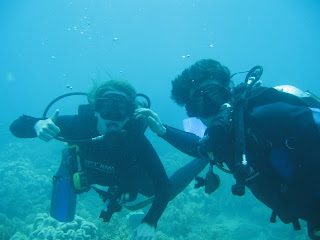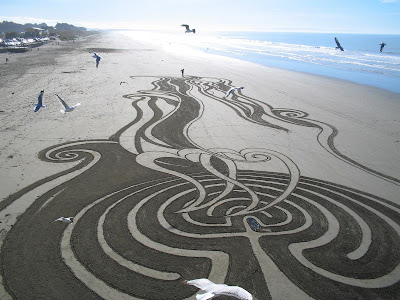





















live a life sculpted in forms of love, written in the poetry of whimsy, and painted with the colours of passion























I've been doing some research on Afghanistan, its history, and its current status. It hasn't been a fun time, but it has been an enlightening one.
Afghanistan I: the land of drugs and death
The country of Afghanistan has a long history of internal warfare, as well as consistent invasion by neighbouring (or distant) countries. The geography and climate of Afghanistan has had a strong influence on its war-torn history, often acerbating social and political strife. It is landlocked with a climate that varies sharply throughout its different regions. Each area, from the lush, green pastures in the north, high mountain plateaus, and desolate, windy desert, has been exploited and misused to the determent of the entire country.
Afghanistan is non-coastal, located in southern Asia, and is situated to the east of Iran and both north and west of Pakistan. On the eastern side of the country Afghanistan also shares a very small border with China. The north is predominantly pastoral farmland, with fertile grassy plains, cultivated fields, and rolling hills. It also has central highlands, which are mountainous and dangerous, encompassing the heart, and majority, of the country. Further to the south is desert, dominated by dry winds and unforgiving, harsh weather.
In the north farmers grow wheat, rice, and cotton, while wandering shepherds graze their sheep and goats. Although this sounds like the idyllic homeland of Heidi, the area has all but forgotten peace. There has been severe drought, destroying crops and herds, and land mines are scattered throughout the region, severely restricting grazing flocks. In the past decade much of the farmland once used for wheat has been transformed and is now primarily used for poppy cultivation. The seeds are processed to make opium and heroin, and nintey-two percent of the world’s opium coming from Afghanistan’s northern region alone, the result is a lucrative drug-smuggling business for terrorists like the Taliban.
Afghanistan’s largest region is the central highlands, an area which has played a vital role in the history of the struggle for control of Afghanistan. This area includes a large portion of the Hindu Kush Mountains, a part of the Himalayas. These cover nearly two-thirds of the country, and are so rough and treacherous that their name roughly translates to mean the Killer of Hindus. The ranges are unforgiving and rough, prone to earthquakes and sudden weather changes. This desert-steppe area typically has snow and strong winds due to its high elevation. The deep valleys and high, ragged mountains are a perfect hiding place for anyone who does not wish to be found, as long as such a person knows how to survive in such a harsh climate.
The mostly barren and windswept area of Afghanistan is located in the desert of the southern plateau. This area is close to the borders of both Pakistan and Iran, and is extremely unwelcoming. It is where the Taliban has its strongest foothold, spreading across the desert into Pakistan. The south is mostly infertile desert, with only a few rivers snaking across it, allowing for some fertile soil.
Regardless of region, Afghanistan is a broken country. The climate and geographical conditions are acerbated by warfare, political instability, and bloodthirsty religious fervor. The strengths of each region have been exploited, whether by drug lords or terrorists or both, resulting in a country full of harsh weather, violence, and poverty.

 For the last seven months I've been back in Canada, helping my parents out and trying to get my life a little more organized. Unfortunately, it's been a lot harder than I thought. I'm easily distracted by, well, pretty much everything. It started to seem like life was just happening and I was coasting along on cruise-control. Shitty job, stuck in the middle of nowhere, no money, very few friends close by (none particularly close), etc... I've been off my game for a (long) while, and I decided to really make an effort to figure a few things out. So, I spent a week with no facebook, no friends, (almost) no internet, no phone calls (except family), no books, no movies, and no tv.
For the last seven months I've been back in Canada, helping my parents out and trying to get my life a little more organized. Unfortunately, it's been a lot harder than I thought. I'm easily distracted by, well, pretty much everything. It started to seem like life was just happening and I was coasting along on cruise-control. Shitty job, stuck in the middle of nowhere, no money, very few friends close by (none particularly close), etc... I've been off my game for a (long) while, and I decided to really make an effort to figure a few things out. So, I spent a week with no facebook, no friends, (almost) no internet, no phone calls (except family), no books, no movies, and no tv.I feel trapped in my parent's house, but I have told them that I will not stay longer than another year. They have that long to figure something out.I feel useless and boring without money.I eventually want to live within at least weekend visiting of my parents and sisters.I want to make a community. get married. have children. have a job. keep learning. volunteer. get involved in projects. travel. not necessarily in that order.I need a certain level of stability and I feel like I don't have that right now.I want to save money to travel once and a while around Canada; maybe abroad when I'm more established and stable.I want to make a community of friends here.
Its not quite as advanced as Terminator technology. But a new concrete that can heal its own wounds may soon bring futuristic protection to bridges and roads.
Championed by California-based competition sponsor the Seasteading Institute, the high-seas homesteading movement is all about creating tiny frontier lands "where those who wish to experiment with building new societies can go to test out their ideas," according to the institute's Web site.

"It is the biggest toxic dumping scandal of the 21st century, the type of environmental vandalism that international treaties are supposed to prevent. A giant multinational is being sued in London's High Court by thousands of Africans who claim they were injured as a result of the waste that was illegally tipped on Ivory Coast's biggest city, Abidjan."
"The province of Shanxi in central China is one of the most polluted places in the world and according to government officials, the rate of birth defects in this region is six times higher than the national average."
“Afghan actress Parwin Mushthal's passion for her job has exacted a heavy toll - resulting in the murder of her husband and forcing her to live in hiding with her two children.”
I wish this story could end on a happier note, but it can't. I wish I could DO something. Thus far, all I am doing is writing notes reaching very, VERY few people. Spreading information is one thing, but I don't feel like I'm actually helping improve anything. I want to help things CHANGE.



